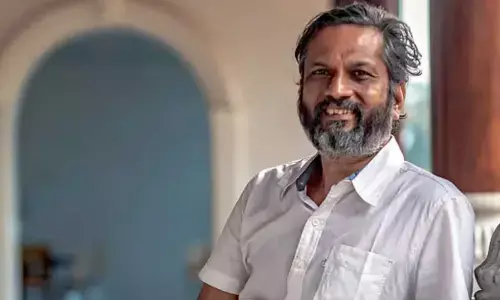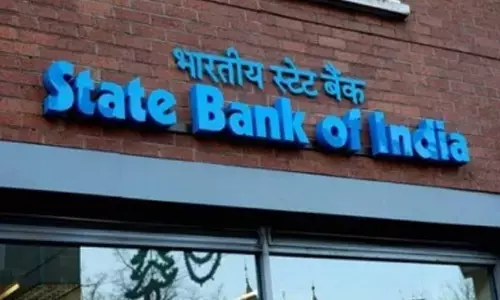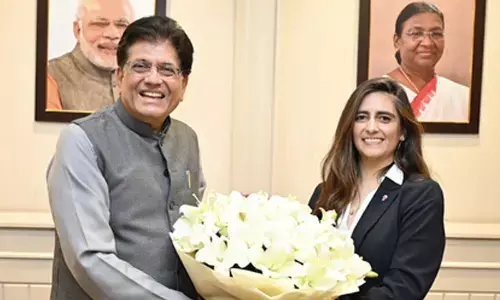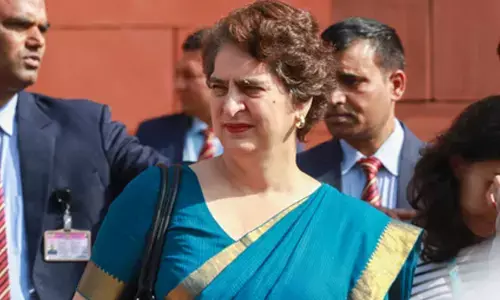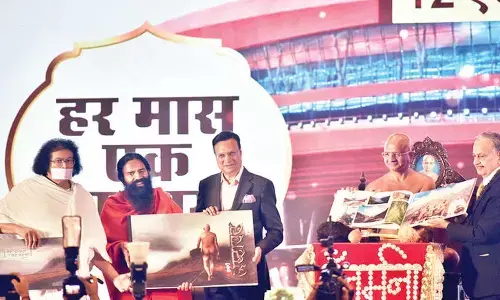Widening divide in polity
Widening divide in polity, Kuldip Nayar, Central Bureau of Investigation, Chidambaram, On top of it comes the manner in which the bill to bifurcate Andhra Pradesh was passed by the Lok Sabha.
INDIA may not be coming apart at the seams but the polity is. Union Ministers are quarrelling among themselves. Feuds of bureaucrats are coming out in the open. Even intelligence agencies, the Intelligence Bureau and the Central Bureau of Investigation, are at loggerheads. Understanding between bureaucracy and the rulers has been reduced to trivialities. So much so that Finance Minister P Chidambaram tells a top official to improve his English and the official, in turn, complains to his minister.
On top of it comes the manner in which the bill to bifurcate Andhra Pradesh was passed by the Lok Sabha. The Lok Sabha television channel, showing the proceedings, was stopped from telecasting live which negates the claim of transparency. MPs in favour of united Andhra Pradesh were not allowed to participate in the debate because as many as 17 of them had been ousted from the house a couple of days earlier when they, including the Congress ministers, were making the passage of the bill impossible.
I am concerned over the precedent the Congress has set and the way the Speaker went along. Tomorrow if the Bhartiya Janata Party (BJP) comes to power and decides to have a legislation to put restrictions on the minorities, the party has only to point out that the then ruling Congress had suspended the basic norms of parliamentary democracy.
For nearly 50 days, there was the government of the Aam Aadmi Party (AAP) exposing the status quo governance which the two main parties, the Congress and the BJP, had perpetrated in the last three decades. In a way, the AAP too has become a regional party as supreme in Delhi as are Mamata Banerjee's Trinamool Congress in West Bengal and Naveen Patnaik's Biju Janata Dal (BJD) in Odisha. Indeed, politics of identity is the biggest danger to the democratic governance. And this in no way is minimising the harm the BJP is doing to the pluralistic ethos inherited from the days of freedom struggle. Gujarat chief minister Narendra Modi is getting large crowds by appealing to the Hindus to imbibe Hindu nationalism.
Muslims are justifiably feeling insecure because the soft kind of Hinduva is contaminating more and more people. To check this dangerous trend, the Congress is too weak and too clueless to show mirror to the nation. Regional parties feel that they can fill the space vacated by the Congress. Probably, they can but it will be at the expense of India's unity. The Constitution which binds all parts of the country together is being violated by some regional parties both in letter and spirit.
There is no option to the federal structure which the constituent assembly cherished and enshrined in the Constitution. Odisha is a typical example of how the Indian polity works. The state is federal in character but dynastic in rule. It seldom defies the Central government, however autocratic or arrogant in its posture at times.
But Chief Minister Naveen Patnaik's rule is personal and he follows the footprints of his father, the late Biju Patnaik who governed in capricious and corrupt manner. He is still remembered because he gave identity to Oriyas who even today are fighting for a place under the sun. Naveen continues to remind people of his father's legacy. I saw during my visit to Bhubaneswar hoardings all over the city with Biju Patnaik's finger pointing towards Naveen as if he was reminding that his successor was his son. (There were also hoardings carrying only
the photo of Rahul Gandhi without his mother, Congress president Sonia Gandhi and Prime Minister Manmohan Singh on either side of Naveen.)
Just as Sukhbir Singh Badal in Punjab, Akhilesh Yadav in UP or Farooq Abdullah in Jammu and Kashmir, Naveen Patnaik's parentage is his asset. The polls in democracy are only up to elections. Subsequently, people cease to count during the five-year tenure of the state assembly. With a clutch of bureaucrats Naveen rules the state, much to the misery and helplessness of the voters. He is worse because he has eliminated leading politicians from his party methodically. He has thus become indispensible. In fact, Naveen's strength is the absence of a leader in his own party and his adversary, the Congress. Former chief minister JB Patnaik preferred governorship of Assam to the ever increasing wrangles in the Congress.
What surprised me was that there was not even a hiss of AAP in the state. I thought that Odisha which has no opposition worth the name would be an ideal place for AAP. The party appears to have not gone beyond Delhi, western UP, Haryana and parts of Rajasthan. No doubt, its birth and success in Delhi evoked a tinge of idealism. But then Arvind Kejriwal became synonymous for the party. He did not allow anyone else to grow. In fact, some of his antics have doused the aspirations of the intelligentsia which saw in him an alternative.
Thank god, some other names who will contest the Lok Sabha elections have come out. They should underline the need for a collective leadership. Dozens of NGOs, with more enviable record than Kejriwal, are distant from the AAP.
They should be persuaded to join the party which is, in fact, a platform for "thousands of mutinies" raging in the country. The AAP, however, needs to come out with its economic agenda because people have essentially voted against the Congress and the BJP.
The AAP has done well in exposing the Central government on the price of natural gas. Even when the private company had signed a contract to purchase gas for $2.5 Btu till 2017, the price has been raised to $8 Btu. It is obvious that Petroleum Minister Veerappa Moily, who has defended the increased price, must be mixed up with the scam, another in the Manmohan Singh regime, left with two months in tenure.
Corruption looks like becoming the poll issue. The Congress with numerous scams will be the target. Per force, the party has made communalism the main issue. Both corruption and communalism have to be confronted with a plank of cleanliness and pluralism. The AAP can plug these lines, provided it stays together.








